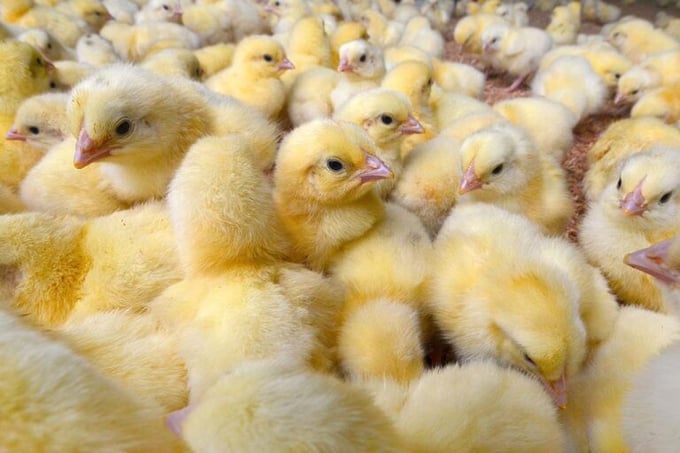November 25, 2025 | 16:03 GMT +7
November 25, 2025 | 16:03 GMT +7
Hotline: 0913.378.918
November 25, 2025 | 16:03 GMT +7
Hotline: 0913.378.918

In 2020, Poland was a net exporter of day-old chicks, while now it has to import them from other European countries to meet the growing demand. Photo: Canva
Nearly 136 million broiler chicks hatched at poultry farms in Poland in October 2023, which is 10 million more than the previous year and 9 million more than in September of 2023, the Polish National Chamber of Poultry and Feed Producers (KIPDiP) calculated. This is believed to be the highest monthly output ever achieved by the Polish poultry industry.
It is expected that this record will pave the way to a yearly production record, KIPDiP forecasted, calculating that roughly 1.5 billion chickens will be slaughtered in the country by the end of the year.
Over the past 8 years, Poland expanded poultry production by nearly 50%, Katarzyna Gawrońska, director of the National Chamber of Poultry and Feed Producers, commented. Poland is not just the largest European broiler meat producer – its poultry industry is also the fastest-growing in the EU, she emphasised.
The past several years’ growth has become a big challenge for Polish hatcheries who struggle to keep up. In 2020, Poland was a net exporter of day-old chicks, while now it has to import them from other European countries to meet the growing demand.
In 2023, Poland was the world’s seventh-largest broiler meat producer. The country manufactures twice as much poultry meat as is needed to meet its own demand. “In the context of our export achievements, the production growth is encouraging because the increase in exports will benefit not only the poultry industry but our country’s entire economy,” Gawrońska said.
In 2024, however, a mix of factors could imperil the growth of production and exports. “We are afraid that the growing value of the zloty in relation to foreign currencies may significantly harm poultry exports,” Gawrońska warned.
Poland ranks third in terms of poultry exports globally, behind only the US and Brazil, commented Krzysztof Badowski, the managing partner of Strategy & Polska. Rising feed and energy costs will constitute the main challenge for the industry next year, he added.
Some opportunities are offered by other segments. In 2022, duck hatchings scaled up production by 71%, and this production is likely to be maintained through 2024.
“However, it should be borne in mind that in absolute values, the production of ducklings in Poland is approximately 50 times lower than the production of chicks for slaughter,” Gawrońska said.
(PW)

(VAN) Brazil's COP30 presidency pushed through a compromise climate deal on Saturday that would boost finance for poor nations coping with global warming but that omitted any mention of the fossil fuels driving it.

(VAN) Poultry farmers in the UK have been warned that they could face one of the worst winters yet for bird flu.

(VAN) Prices of main-crop paddy have risen sharply, with jasmine rice hitting 16,100 baht per tonne — the highest level in years.

(VAN) In Brazil, FAO unveiled a series of reports and initiatives showing how sustainable agrifood systems are a solution to the climate crisis.

(VAN) With names like neodymium and dysprosium, rare-earth elements sound exotic — and their perceived scarcity has only added to the mystique.

(VAN) In a new study published in Trends in Biotechnology, researchers used a gene-editing technology called CRISPR to increase a fungus's production efficiency and cut its production-related environmental impact by as much as 61%- all without adding any foreign DNA.

(VAN) A top official in Beijing’s Cop delegation says China is committed to clean energy – but US’s absence is a problem.